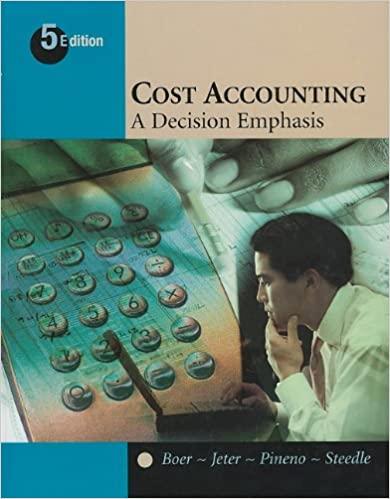Question
1. According to Millstein (1998), the term corporate governance can be defined both narrowly as well as more broadly. Discuss both the narrow and broader
1. According to Millstein (1998), the term corporate governance can be defined both narrowly as well as more broadly. Discuss both the narrow and broader definition of corporate governance.
2. Millstein (1998) further found when looking at the question of for whom the corporation was governed a few different models of corporate governance. Discuss the different models identified in the literature.
3. The Millstein Report (1998) states that stakeholder and shareholder interests are not necessarily mutually exclusive. Who were identified as the most successful corporations from the corporate governance perspective?
4. Gregory and Simms (1999), observed the impact of the quality of corporate governance in four areas. Discuss the impact of these four areas on the quality of corporate governance.
5. Gregory and Simms (1999) observed that corporate governance practices vary across countries and industries. Discuss the issues that contribute to these differences in corporate governance practices.
6. Millstein Report (1998) noted that for corporate governance to be effective in attracting capital, it must focus on four important areas. Elaborate on the four areas identified for this purpose.
7. Millstein Report (1998) urged the promotion and articulation of the four core standards of corporate governance i.e., fairness, transparency, accountability, and responsibility. In respect of the fairness concept elaborate on the two separate principles, which were developed.
8. Socially responsible corporate conduct is consistent with the principle of shareholder wealth maximization. Do you agree or disagree with this statement? Support your arguments with relevant evidence.
9. Why is it so important for the corporate governance framework to ensure that timely and accurate disclosure is made on all material matters regarding the corporation including the financial situation, performance, ownership, and governance of the company?
10. The author concluded his paper by stating that a consensus on a single model of corporate governance is both unlikely and unnecessary since over time, market forces will lead to increasing convergence in corporate governance practices between different countries. Do you agree or disagree with this statement? Find evidence to support your arguments.
Step by Step Solution
There are 3 Steps involved in it
Step: 1

Get Instant Access to Expert-Tailored Solutions
See step-by-step solutions with expert insights and AI powered tools for academic success
Step: 2

Step: 3

Ace Your Homework with AI
Get the answers you need in no time with our AI-driven, step-by-step assistance
Get Started


